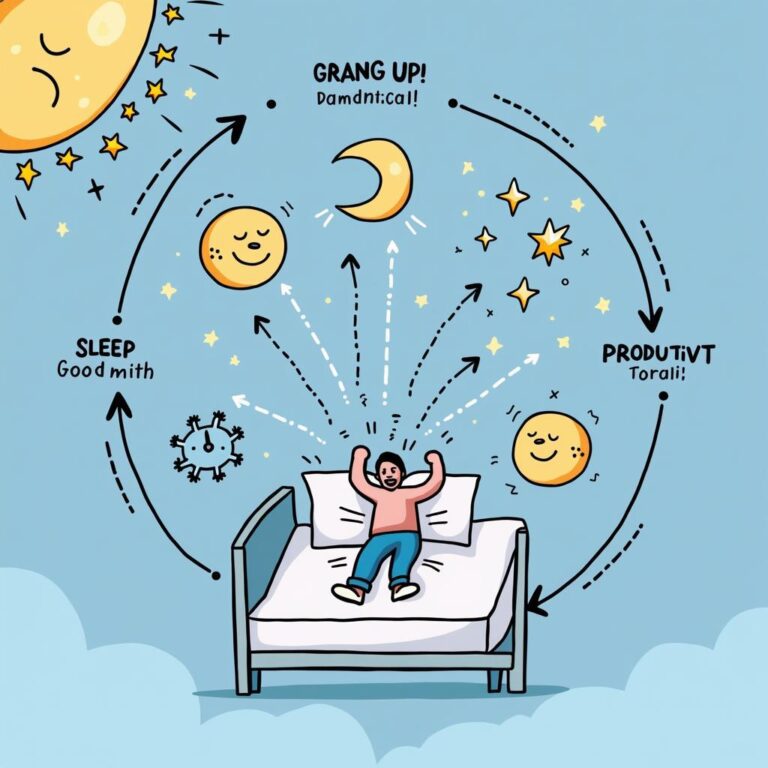Understanding REM Sleep
Rapid Eye Movement (REM) sleep is one of the five stages of sleep that cycles throughout the night. Characterized by quick movements of the eyes, increased brain activity, and vivid dreaming, REM sleep is essential for optimal brain function and overall well-being. Usually occurring about 90 minutes after you fall asleep, REM sleep accounts for roughly 20-25% of your total sleep time. The body enters this phase several times during a typical night, with each phase becoming longer with each subsequent sleep cycle.
The Role of REM Sleep in Cognitive Function
Quality sleep, particularly REM sleep, plays a significant role in various cognitive processes, including learning, memory consolidation, and problem-solving. During REM sleep, the brain processes information and experiences from the day, integrating new memories with established ones. Research suggests that individuals who get an adequate amount of REM sleep perform better on creative tasks and exhibit improved memory recall.
For professionals and students alike, this cognitive enhancement is critical. If you are in a creative field, REM sleep can enhance your ability to look at challenges from different perspectives, leading to innovative solutions. In academic settings, students who prioritize REM sleep often find they can retain information longer and reproduce it more effectively during exams.
Connection Between REM Sleep and Mood Regulation
The impact of REM sleep extends beyond cognitive functions—it’s also crucial for emotional regulation. Sleep deprivation, particularly a lack of REM sleep, has been linked to increased levels of stress and anxiety. During REM sleep, the brain processes emotional experiences, helping to stabilize mood and reduce negative emotional responses.
Maintaining a balanced emotional state is vital for productivity. A worker who is emotionally balanced is less likely to feel overwhelmed and more capable of focusing on tasks. Studies have demonstrated that individuals who are well-rested, especially with adequate REM sleep, report higher levels of job satisfaction and motivation, contributing significantly to their overall productivity.
Impact of Sleep Deprivation on Productivity
Lack of REM sleep can lead to significant declines in productivity. Sleep cycles affect various aspects of health, including attention span, reaction time, and decision-making capabilities. When the body lacks sleep, the ensuing fatigue can manifest as irritability, decreased motivation, and cognitive impairments.
In a workplace setting, this can translate to lower performance levels, increased errors, and diminished creativity. Companies that recognize the need for adequate sleep among their employees often see positive changes in output. A well-rested employee is more likely to meet deadlines and engage actively with their work, leading to overall productivity improvement.
Strategies to Enhance REM Sleep
For individuals seeking to boost productivity through the enhancement of REM sleep, several strategies can be adopted:
1. Maintain a Consistent Sleep Schedule
Creating a regular sleep schedule helps regulate the body’s internal clock, making it easier to fall asleep and wake up feeling refreshed. Aim for 7-9 hours of sleep per night and try to keep consistent sleeping and waking times, even on weekends.
2. Create a Restful Environment
Your sleeping environment can significantly affect the quality of your sleep. Aim for a dark, cool, and quiet room. Invest in comfortable bedding and consider using blackout curtains, earplugs, or white noise machines if needed.
3. Limit Stimulants Before Bed
Avoid caffeine, nicotine, and other stimulants in the hours leading up to bedtime. These substances can interfere with your ability to fall into a deep sleep, which is necessary for experiencing REM sleep.
4. Practice Relaxation Techniques
Engaging in relaxation techniques such as meditation, deep breathing exercises, or yoga can help calm the mind and prepare the body for sleep. By reducing stress levels, these practices promote a smoother transition into REM sleep.
5. Limit Screen Time Before Bed
The blue light emitted from screens can interfere with the production of melatonin, the hormone responsible for regulating sleep. Establish a screen-free time at least an hour before bedtime to promote better sleep quality.
The Bottom Line
The importance of REM sleep for productivity cannot be overstated. It influences cognitive functions such as memory, creativity, and emotional stability—all crucial elements for personal and professional success. By prioritizing REM sleep through practical strategies, individuals can unlock their full potential, leading to enhanced productivity and a better quality of life.
Recognizing the value of sleep in a fast-paced world is critical. As more research emphasizes the significance of sleep stages, especially REM, one can begin to appreciably shift work habits and lifestyles focused on achieving optimal rest. Only by ensuring sufficient REM sleep can we truly maximize our productivity and overall efficacy in all aspects of life.







